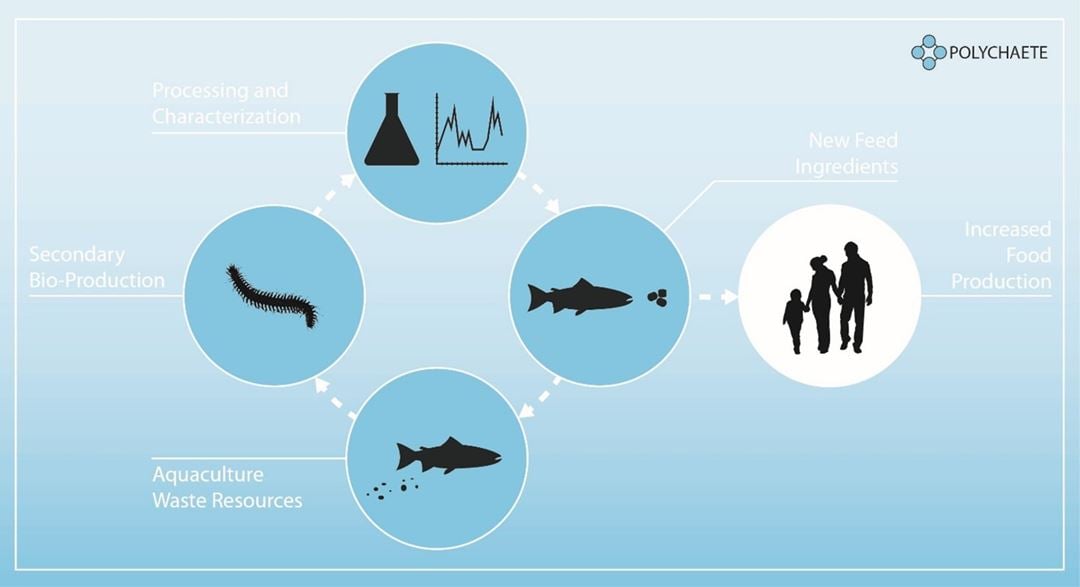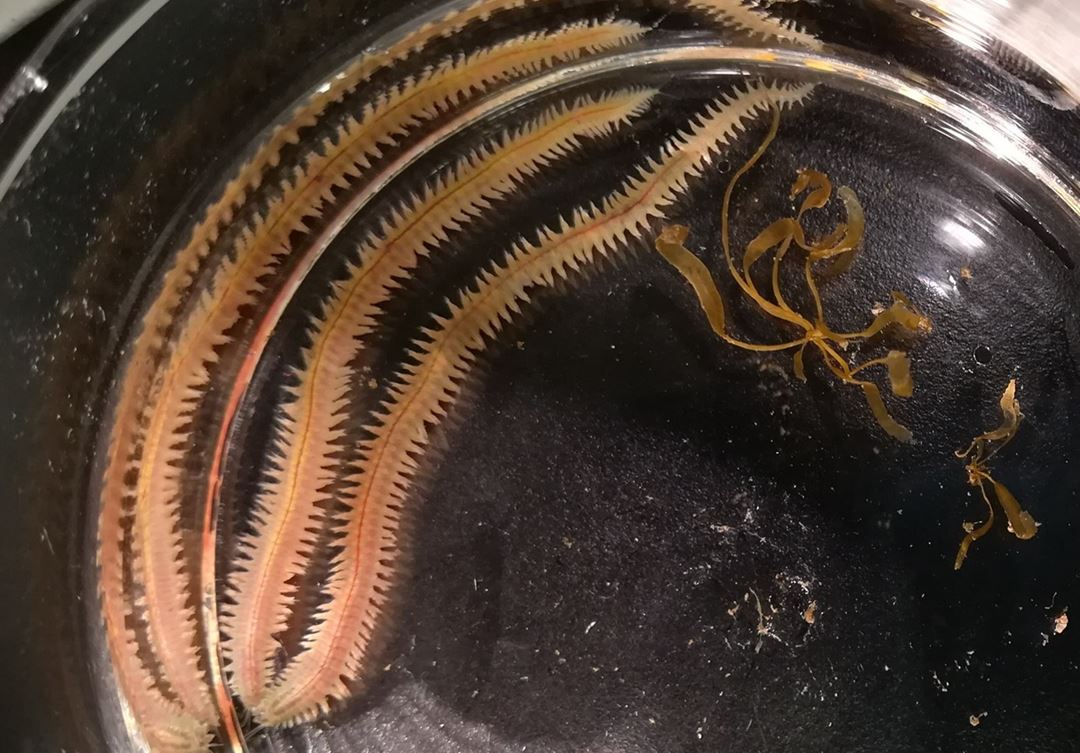Salmon aquaculture is constantly growing and along with it the amount of waste products produced increases. Although salmon aquaculture is an efficient food production method compared to agricultural animal production, today more than half of the feed input is lost to the environment. Uneaten feed and fish faeces are by no means waste, but contain minerals and organic materials such as proteins and lipids that are in high demand.
In this project (POLYCHAETE), we will utilize these otherwise discarded resources by cultivating bristle worms (Polychaeta), which themselves are rich in fatty acids, proteins and minerals. In nature, marine
Polychaeta effectively transform natural and aquaculture organic wastes
into high quality protein and n-3 lipid rich body biomass, which are in
high demand. The project will use a multidisciplinary approach to target 1) establishment of brood stocks and reproduction, 2) polychaete production biology and technology, 3) characterization and stabilization of polychaete biomass, 4) polychaete meal production, feed formulation, extrusion technology and feeding trials with salmon, and 5) economic and sustainability analysis.
We will also build a test-unit for the upscaling of industrial polychaete production. Fish feed trials will be performed with different levels of substituting fish meal and other protein sources by polychaete meals to find the optimal level of polychaete meal and to evaluate feed efficiency and the nutritional quality of polychaete meal for salmon culture. With POLYCHAETE, Norway can take key steps to develop circular economy through biological recycling of aquaculture waste and production of a new raw material for formulated feeds.
The consortium consists of SINTEF Ocean, NOFIMA, NTNU, Norwegian Business School BI (Norway), University of Rostock (Germany), Dalian Ocean University (China) and ProChaete Innovations (UK).

In the framework of the POLYCHAETE project we have so far published five scientific papers, and educated four MsC students and one PhD student.
Peer reviewed articles:
- Kabeya, N., I. Gür, A. Oboh, J.O. Evjemo, A.M. Malzahn, F. Hontoria, J.C. Navarro & O. Monroig. 2020. Unique fatty acid desaturase capacities uncovered in Hediste diversicolor illustrate the roles of aquatic invertebrates in trophic upgrading. Philosophical Transactions of the Royal Society B 375.20190654.
- Wang, H., A. Hagemann, K.I. Reitan, J. Eilertson, H. Wollan, A. Handå & A Malzahn. 2019a. Production of the polychaete Hediste diversicolor using side streams from aquaculture and biogas production and its potential as an aquaculture food source. Aquaculture Environmental Interactions 11.551-62.
- Wang, H., I. Seekamp, A.M. Malzahn, A. Hagemann, A.K. Carvajal, R. Slizyte, I.B. Stendal, A. Handå & K.I. Reitan. 2019b. Growth and nutritional composition of the polychaete Hediste diversicolor (OF Müller, 1776) cultivated on wastes from land-based salmon smolt aquaculture Aquaculture 502.232-41.
- Wang, Haiqing, Andreas Hagemann, Arne M. Malzahn, Aleksander Handå, Marianne Uhre, Elin Kjørsvik & Kjell Inge Reitan. 2020a. The role of manipulating photoperiod and temperature in oocyte development of the polychaete Hediste diversicolor (O.F. Müller, 1976). Frontiers in Marine Science 7.
- Wang, Haiqing, Andreas Hagemann, Kjell Inge Reitan, Aleksander Handå, Marianne Uhre & Arne M. Malzahn. 2020b. Embryonic and larval development in the semelparous Nereid polychaete Hediste diversicolor (OF Müller, 1776) in Norway: Challenges and perspectives. Aquaculture Research 51.4135-51.
PhD Thesis:
- Wang, Haiqing. 2020. Utilization of the polychaete Hediste diversicolor (O.F. Müller, 1776) in recycling waste nutrients from land-based fish farms for value-adding applications. Trondheim, Norway: Norwegian University of Science and Technology NTNU PhD.
MSc Theses:
- Berentsen, F. 2018. Growth of the Polychaete Hediste diversicolor (O. F. Müller, 1776) fed on Smolt Sludge and Biogas Residues Evaluation of RNA/DNA Ratio as growth indicator. Trondheim, Norway: NTNU.
- Sandmann, Phillip. 2019. Utilization of sediments from the culture of African catfish (Clarias gariepinus) for cultuvating the polychaete Hediste diversicolor (Müller 1776): University of Rostock.
- Seekamp, I. 2017. Utilization of excess nutrients from landbased aquaculture facilities by Hediste diversicolor (O.F. Müller, 1776. Trondheim: Norwegian University of Science and Technology.
- Uhre, M. 2019. Oocyte development in Hediste diversicolor (O.F. Müller, 1776) and influence of manipulated light cycles. Trondheim: Norwegian University of Science and Technology.
